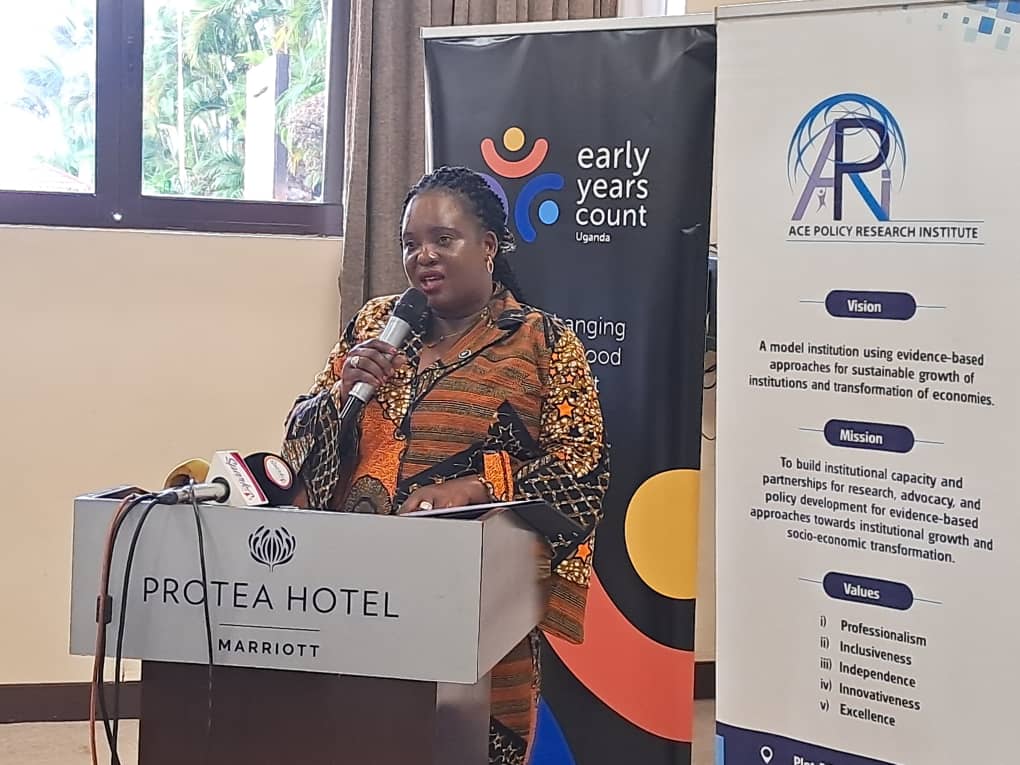Government approves policy to regulate learning hours, fees of pre-primary schools

The Minister of Gender, Labour, and Social Development, Betty Amongi, has announced that the Cabinet has approved the National Early Childhood Development and Education policy.
This policy aims to regulate learning hours and fee structures in pre-primary schools, among other objectives.
Keep Reading
During a high-level Childcare dialogue in Kampala titled "Facing Forward & Building Foundations for Quality Childcare in Uganda," centred around the theme "Child Care as a Fundamental for Human Capital Development," the minister made this announcement.
The policy dialogue brought together key stakeholders to discuss the importance of quality childcare, identify gaps, share best practices, and discuss policy recommendations for the implementation and delivery of childcare services.
Amongi stated that the policy would ensure the establishment of early childhood development centres throughout the country, including those owned by private entities.
Additionally, the Ministry of Education is expected to provide guidelines for individuals launching childcare services as a business.
"We are concerned about the early hours at which young children are exposed to these care facilities. We are also concerned about the fee structure because childcare is no longer a matter of luxury for working women; it is a necessity. Therefore, we need to regulate the fees as well," emphasised Amongi.
She further explained that the Ministry of Education would develop a curriculum for pre-primary education, expressing concerns about the use of disparate curricula in many existing facilities.
"I am pleased to announce that on Monday, the cabinet passed the National Early Childhood Development and Education policy, which recognises the need to strengthen coordination among all stakeholders, starting with parents as the primary caregivers," highlighted Amongi.
Guidelines will be formulated to ensure parents are well-equipped with knowledge about teaching their children, taking into account that a child's brain grows rapidly within the first three years.
"In fact, within the first three years, 80% of a child's brain growth occurs. Thus, we have developed this policy to sensitize and provide guidelines to parents on how to care for children during these crucial early years, fostering their development into productive and intelligent individuals," she stated.
Amongi also emphasised the critical role of the government in delivering early childhood care, stating that childcare should begin at three years until five years, with enrollment in primary school occurring at six years.
The Ministry of Education will be responsible for estimating the costs and expanding infrastructure in government primary schools to accommodate pre-primary education under this policy.
Childcare in Uganda has been addressed under various frameworks, with the Ministry of Gender, Labor, and Social Development focusing on care, the Ministry of Education handling education, and the Ministry of Health overseeing early childhood development, including immunization.
Stakeholders stressed the need for increased investment in early childhood development to ensure Uganda has a high-quality and dependable human resource base for its future development.
It has been observed that insufficient attention is given to child upbringing and care, particularly during the first three years of life, which is a critical period for shaping a child's capacities.
The Founder of the ACE Policy Research Institute, Jacklyn Makaaru Arinaitwe, emphasised the importance of nurturing and supporting children's potential during the first three years, stating that significant brain development occurs during this period.
Arinaitwe also highlighted gaps in childcare, including the determination of quality and operating hours for privately owned childcare centres.
"No guidelines exist regarding the hours of operation, so it is not appropriate for children to wake up at four in the morning to attend an early learning or childcare centre. However, mothers have to work, and there is no one to stay at home with the children. We need quality standards," said Arinaitwe.
Manuela Pacutho Mulondo, the Executive Director of the Early Years Foundation, welcomed the policy as a critical measure for shaping human capital in Uganda.
She emphasised that for Uganda to progress as a country and achieve middle-income status, it is crucial to ensure that as many children as possible are included and not left behind.
"With these regulations, we now have defined standards and quality benchmarks to provide for all children in Uganda," said Mulondo.

















